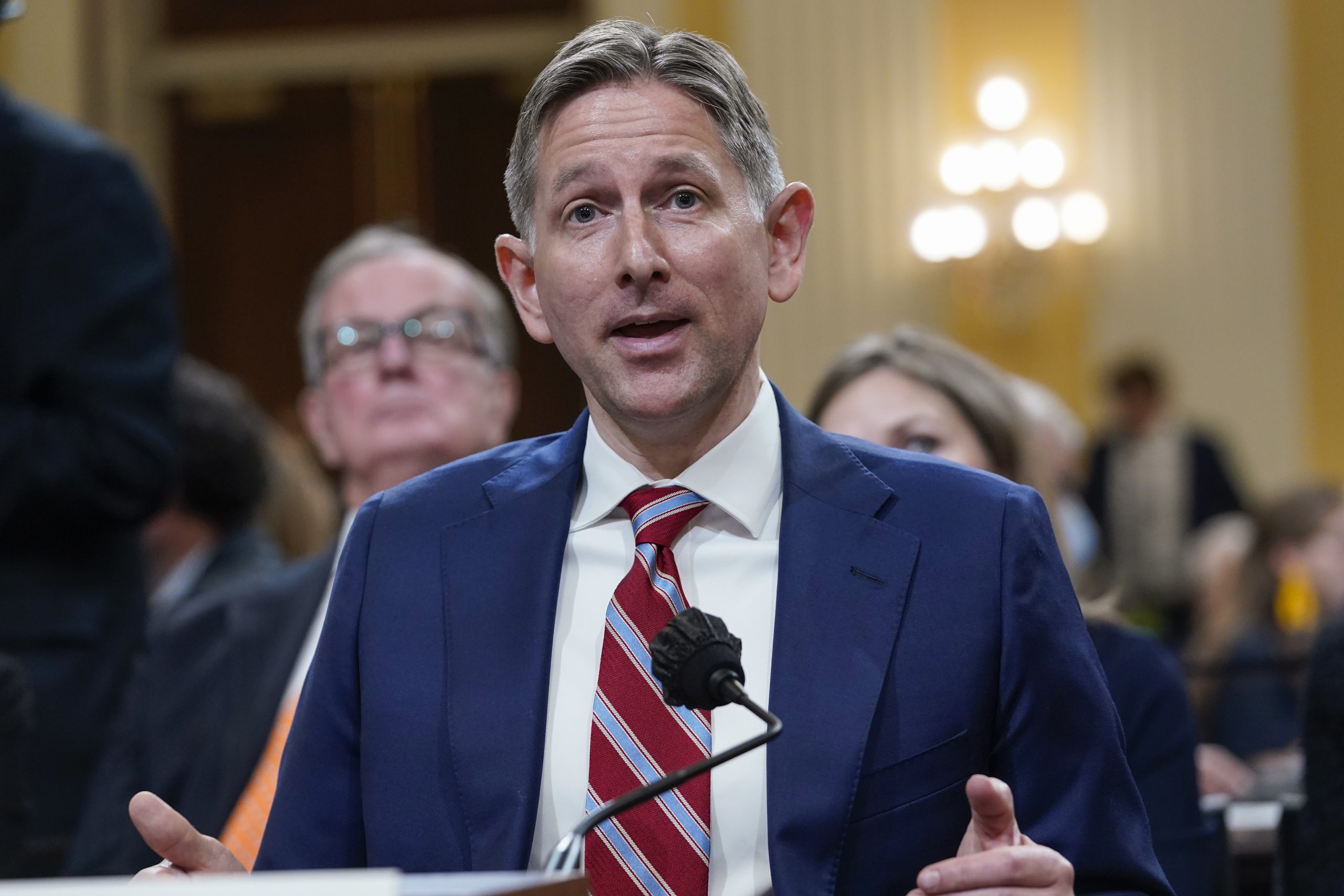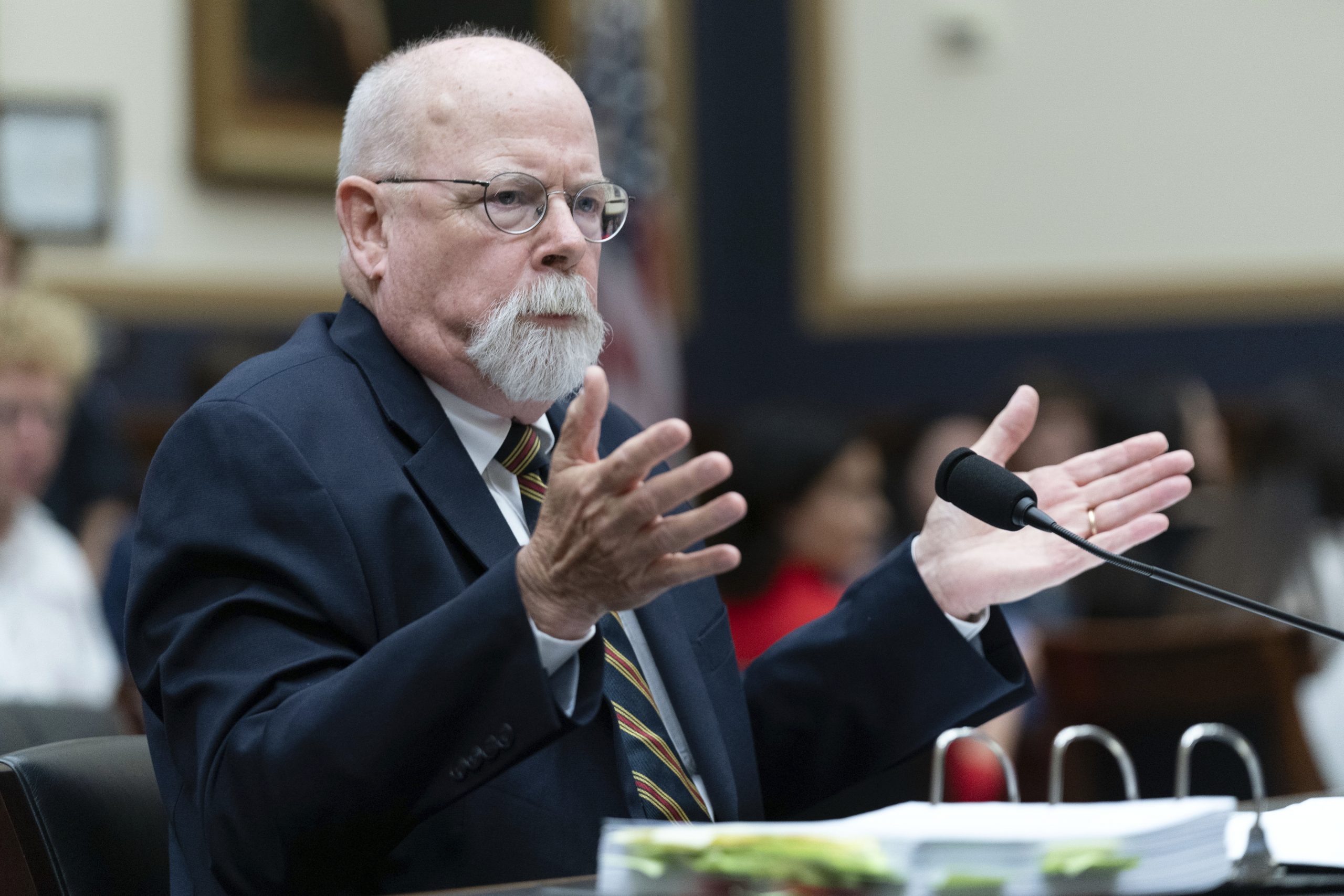A federal appeals court has further complicated the fight over access to the abortion pill with a new ruling that mifepristone can remain on the market but only under strict conditions that could drastically limit access.
In a 42-page decision released late Wednesday night, a three-judge panel of the 5th Circuit Court of Appeals agreed to temporarily block the central aspect of a Texas-based federal judge’s ruling that suspended the FDA’s 2000 approval of the drug. However, by a 2-1 vote, the panel permitted other portions of that ruling to take effect, effectively unwinding the steps the FDA has taken since 2016 to ease access to the drug.
What does this mean for abortion pills?
Unless the Supreme Court intervenes, the 5th Circuit’s decision means that starting Saturday, mifepristone will remain legal at the federal level but access will be much more restricted.
Mifepristone, one of two drugs commonly used together to cause an abortion, was approved 23 years ago by the FDA for use in the first 10 weeks of pregnancy and recently became the most common method of abortion in the United States.
The 5th Circuit did not go as far as U.S. District Court Judge Matthew Kacsmaryk, whose ruling last Friday would have effectively removed the pill from shelves nationwide, but it did significantly roll back much of the FDA’s recent efforts to expand access.
The court decision cuts off — at least temporarily — many of the pathways patients have used to obtain the pill in the last few years, including telemedicine prescriptions and mail delivery, and moves the cutoff for prescriptions from the current 10 weeks of pregnancy to seven.
Should the ruling stand, retail pharmacies will no longer be authorized to dispense the drug. Physicians will not be able to prescribe the drug via telemedicine; instead, patients will have to make multiple in-person office visits to get a prescription. Additionally, non-physicians will not be able to prescribe or administer the drug, and prescribers will have to resume reporting “non-fatal adverse events” related to mifepristone to the federal government. The decision also suspends FDA approval of the company GenBioPro’s generic version of mifepristone, another blow to access.
Isn’t there another abortion pill?
Yes, misoprostol. The two pills are usually taken together to end a pregnancy during the first 10 weeks. Numerous studies have found both pills to be safe and effective.
The new restrictions set to take effect don’t apply to misoprostol, because it is subject to fewer FDA regulations as the medication is primarily prescribed for non-abortion purposes, including treatment for stomach ulcers. Misoprostol can still be used on its own to end a pregnancy and abortion providers around the country say they’ve been preparing for months to pivot to offering misoprostol-only abortions if needed. However, there is a slightly higher risk of side effects and complications when the pills are used without mifepristone. States including California and New York announced this week that they’d be stockpiling misoprostol as a way to ensure access to an alternative method of abortion.
What does the Biden administration do now?
Attorney General Merrick Garland said Thursday that the Justice Department will seek emergency relief from the Supreme Court in order “to defend the FDA’s scientific judgment and protect Americans’ access to safe and effective reproductive care.” It would take five justices to put the 5th Circuit’s decision on hold and maintain the status quo while further appeals continue, although it’s possible Justice Samuel Alito — who oversees the 5th Circuit — could issue a temporary stay while the other justices weigh in.
Can doctors use “off label” prescribing beyond seven weeks of pregnancy?
Yes, but they may be reluctant to do so. The 5th Circuit’s decision rolled back an FDA policy that had expanded approval of mifepristone for use in the first 10 weeks of pregnancy rather than just the first seven weeks. Many doctors currently prescribe the drug beyond 10 weeks as an off-label use. Under the court decision, prescribing the drug after seven weeks would now be considered off-label. Some doctors may exercise that option, but there is likely to be a chilling effect from the court’s decision, with many doctors wary of running afoul of the court order during a time of legal uncertainty.
What does this mean for people who live in states where abortion is illegal after six weeks?
Most people do not know they are pregnant before six weeks. Abortion pills, which could be ordered online and delivered through the mail, had been seen as a way for people who live in states with six-week bans to terminate their pregnancies even after six weeks. Reining in the drug’s availability is likely to dramatically diminish its usefulness in these states.
What about in blue states, where most abortions remain legal?
The decision could also hamper access in blue states that have sought to maintain access to the pills, making them harder to access both for their own residents and the wave of people traveling from red states to terminate a pregnancy.
Jennifer Dalven, the director of the ACLU’s Reproductive Freedom Project, argued to reporters Thursday that a competing district court ruling out of Washington state ordering the FDA to maintain the status quo should mean that nothing changes in the 17 states and Washington, D.C., where attorneys general sued the FDA — but without clear direction from judges and administration officials the legal status in those states remains uncertain.
“In some places, FDA is under an obligation, a court order, not to further restrict access to abortion,” she said. “But it is completely unclear right now exactly how this will play out. We really need guidance both from the Supreme Court and potentially, ultimately the FDA.”
Even if those 17 states and D.C. are shielded from the impact of the ruling for now, several of the country’s biggest states, including New York and California, are not part of the case and thus could be hit with the new restrictions ordered by the 5th Circuit.
What will the anti-abortion challengers do?
Alliance Defending Freedom, which represents the anti-abortion medical groups seeking to block access to mifepristone, told reporters on a call Thursday that it has “no immediate plans” to appeal the 5th Circuit’s decision even though the panel did not give anti-abortion groups the total suspension of the pills’ approval the groups requested and won from Kacsmaryk last week.
“For now, we’ve got a great victory in the fact that there are now three required doctor visits to make sure women are safe, and the FDA complies with the rule of law,” said Erin Hawley, ADF’s senior counsel in the case. Hawley added, however, that the plaintiffs will continue pushing to have the FDA’s original approval of mifepristone overturned.
“We anticipate that we might be able to persuade the 5th Circuit on a fuller briefing that the 2000 ruling is in play,” she said, noting that the appeals court did not take issue with the core of their arguments that the FDA approved the pills without adequately studying their safety risks and only took issue with the timeliness of the challenge to a decision the agency made 23 years ago.
Are the feds facing conflicting rulings?
Last Friday, federal judges in Texas and Washington state issued dueling abortion-pill rulings within about 20 minutes of each other. Kacsmaryk, an Amarillo-based appointee of President Donald Trump, penned the decision suspending approval of mifepristone and blocking the various expansions FDA has implemented since 2016. Judge Thomas Rice, a Spokane-based appointee of President Barack Obama, issued an order forbidding FDA from rolling back availability of the drug in 17 states and Washington, D.C. — all of which are plaintiffs in a separate case aimed at lifting all special restrictions on the drug.
Just before appealing Kacsmaryk’s decision, the Justice Department asked Rice to clarify his order in light of Kacsmaryk’s. Rice responded Thursday afternoon with a clarification that didn’t back down from his original ruling, saying that it remains in effect and “must be followed by Defendants.”
It’s unclear how the Biden administration plans to reconcile the two decisions, but it appears the FDA may be able to technically comply with both decisions by simply taking no steps to implement either one, at least for now. That would leave doctors, pharmacies and patients to figure out on their own what use of the mifepristone abortion pill remains legal and where.
Spokespeople for the FDA referred questions to the Justice Department, which had no immediate response to Rice’s latest order, but it seems likely DOJ lawyers will cite the divergent orders as one of the reasons the Supreme Court should take emergency action to resolve the dispute.




